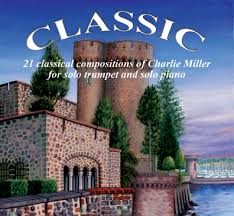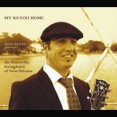Description
Release Year: 1978, re-issue 2012
Label: Independent
Track Listing
- Opening Prayer – trumpet
- Piano Song #1 (Psalm)
- Toccata – trumpet
- Piano Song #2
- Largo for Mr. Brook – trumpet
- Minuet – trumpet
- Piano Song #3
- Aria – trumpet
- Piano Song #4
- Lament – trumpet
- Piano Song #5
- Three Phrases – trumpet
- Piano Song #6
- Cantabile – trumpet
- Piano Song #7
- Lullaby – trumpet
- Piano Song #8
- Waltz – trumpet
- Piano Song #9
- Sunset – trumpet muted
- Closing Prayer – trumpet
Personnel
- Charlie Miller – trumpet, piano
Reviewed in OffBeat
Joseph Irrera (July 2014 Issue)
Charlie Miller usually greets me with, “Hello Beethoven”—his way of letting me know that he remembers that I, too, write music. But my music pales in comparison to Miller’s spiritually haunting melodies on his latest album, Classic.
In the poem “Sailing to Byzantium” Yeats’ dominant theme is to escape from the hardships of this world. Miller’s music for solo trumpet and piano is “Sailing to Byzantium” put to music. In our society of people who live for the moment—but ignore the wisdom and intellect that has been passed down—understanding the music on Classic will be difficult, but it’s worth the effort. Miller gives us a statement that leaving this physical world of apathy will bring us to a sort of paradise in our minds. The journey that Miller takes us on is profound and enlightened.
A childhood friend of Mac Rebennack since he was 11 years old, Miller played trumpet with Mac (Dr. John) in his various different groups, including the early Skyliners.
In these 21 short pieces he takes us to Provence, “a nocturne reflecting the sunlight, sips, tastes, and whiffs of lavender,” to Spain in “Piano Song #5,” and to the Euphrates River evoking “rippling water.” The “Largo for Mr. Brook” for solo trumpet is a tribute to J.S. Bach, whose name, Miller points out, means “brook.” This is followed by a “Minuet” also for solo trumpet in the style of Bach. Miller closes Classic with “Closing Prayer” for solo trumpet, his message “floating across a vast tranquil space, sharing its precious peace …”
Miller recorded the trumpet parts at the City Center, Manhattan’s first performing-arts center and the venue where I attended an early Philip Glass concert, the one that made the New York Times’ front page when an audience member, apparently going crazy from the repetition, punched Glass. But don’t let me wander: Charlie told me he has been writing the music for Classic nearly all his life and, as such, I see this as Miller’s bid for immortality. As long as his music exists and is listened to, a part of his soul will certainly continue to live. Take a listen—Classic, as Charlie Miller says, will bring you to a paradise in your mind.





